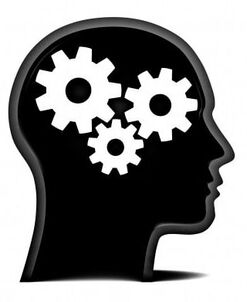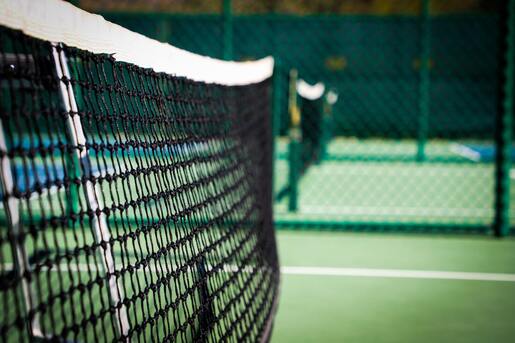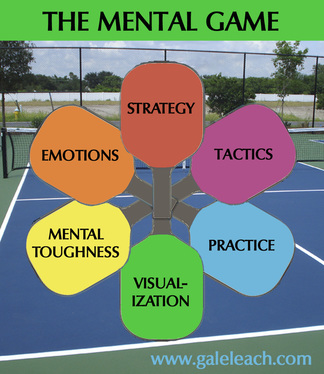 Photo: Gears In Silhouette Head (Master isolated images), source: freedigitalphotos.net {cropped}.
Photo: Gears In Silhouette Head (Master isolated images), source: freedigitalphotos.net {cropped}. We've discovered that, yes, there is life after pickleball, though it's not as much fun. People are taking up long-abandoned projects, cleaning out garages and kitchens, and working hard to be safe.
But one aspect of your pickleball game doesn't have to stop when you can't get to the court. Many of you have read my previous posts regarding the mental game—this is one more. Just as much as learning how to swing the paddle or learn the rules, your mental preparedness and attitude before you get to the court and while you're playing can make or break your game.
So you have lots of time now, right? Put it to good use! If you haven't already, start your mental workout today.
Whether you're new to pickleball or you're a champion, there are always parts of your game that could be improved. List those things (up to 3) and prioritize them in the order you'd like them fixed. Now, list methods or strategies that will help you improve the number one item on your "to do" list. (Don't toss the number 2 and 3 items; simply concentrate on the first one until it is better. Then your second item will become your first, and so on.)
Perhaps your number one need for improvement is returning the ball low over the net. What things could you do to make that better? Find someone who can watch you return the ball and coach you to doing it better. If you have a ball machine where you play, some dedicated time returning shots would be good. Get a friend who also needs help or drilling and trade off time. Hit against a wall over a painted line and score points for every hit that stays within a 6" zone above it. (Reward yourself with something when you get enough points.) Read what other people have to say about that problem on the internet, and watch videos explaining how to do it better. (Videos are good because you can use mental imaging to see yourself doing it right, too.)
You get the idea. When the courts are open again, you'll have a plan to overcome your weakness.
But don't ignore one other list that's equally important—maybe more so. List at least 5 things you do well in your pickleball games and practices. These can be minor or major (e.g., I dink well, I have patience, I hit a good backhand, I communicate clearly to my partner). Every day or night, look at this list and even state the items aloud. If you think of new things, add or replace them. The key here is accepting that, while your game could be improved, you also do things well on the court. Knowing those things and centering on positive thoughts can help your game in many ways.
Once you're back to playing on the courts, don't abandon your lists or the process of remaining positive. Your process of improvement is, in itself, a positive thing. Take just the one element and make it better, while reinforcing mentally all the good things you already do.



 RSS Feed
RSS Feed